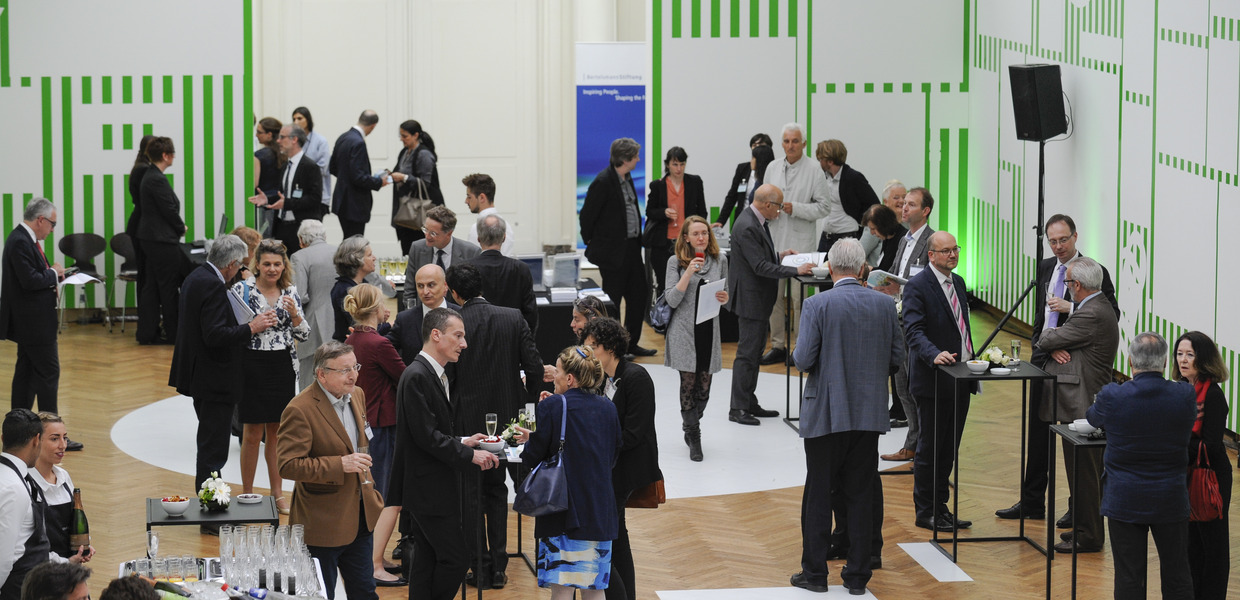On May 31, 2016, the Bertelsmann Stiftung invited 100 representatives from the EU, its individual member states and civil society for an evening of discussion at the Centre for Fine Arts Brussels “BOZAR” in which the findings of the Vision Europe Summit were presented. The event began with a visit to the "Imagine Europe – In search of new narratives" exhibit, thereby preparing participants for a discussion about whether an EU able to facilitate upward social convergence and social inclusion is a feasible EU narrative of the future.
The EU Commission, under President Jean-Claude Juncker’s leadership, has declared its intention to prioritize an EU worthy of a social triple-A rating. In his opening remarks, Eric Thode (Bertelsmann Stiftung, Director International Forums and Trends) laid out the framework of what this might entail.

